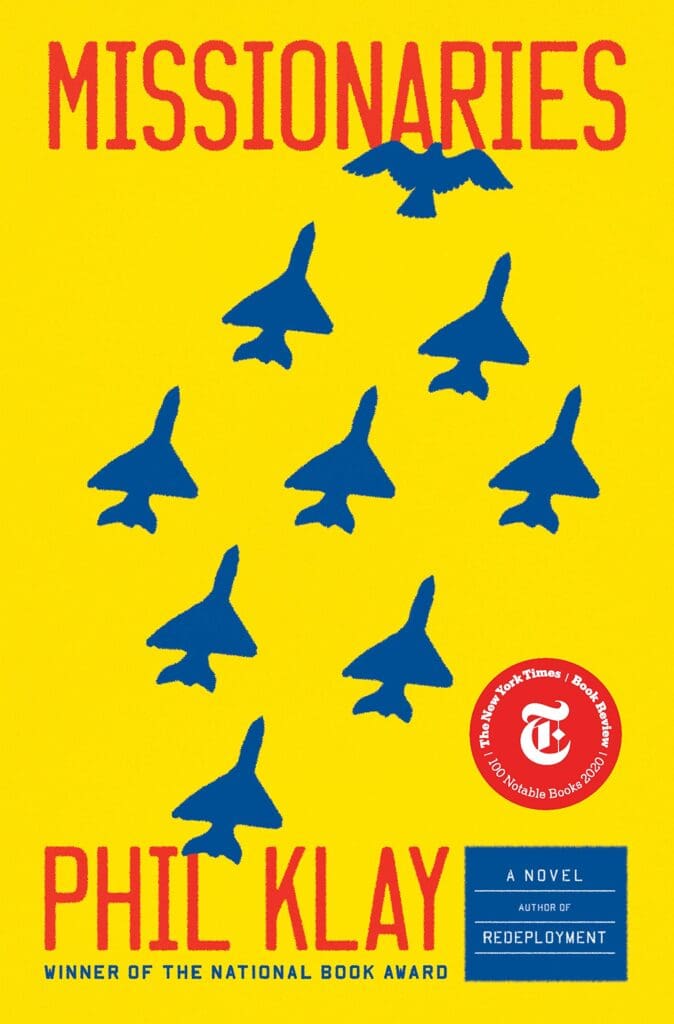In an era of globalized conflict and widespread disinformation, all of which help fuel conspiracy theories and increasingly violent online factions, the world stage can appear given over to chaos. It is for precisely these reasons that Phil Klay’s most recent novel, Missionaries (404 pages; Penguin Press), feels so refreshing, as the author draws connections and finds meaning in the disorder. The plot largely takes place in Colombia and centers around the various factions (paramilitary groups, guerilla fighters, the Colombian government, and U.S forces) that strive to steer the country in the direction that best suits their own interests. Though Missionaries focuses on the perspectives of its four characters (two are American and two Colombian), the reader is treated to the viewpoints of a variety of characters such that every side in this power struggle is given its due.
Despite the novel’s fast-paced action sequences, it’s the character development and poignant commentary—through the clashing of nationalities, socio-economic backgrounds, and ideologies—that proves most rewarding. Klay’s protagonists may think and act differently from one another, yet they decry and hate the same things. Missionaries speaks to the immutability of shared experiences in a divided world.
In the book’s first section we are introduced to Abel, a young man who joins the local paramilitary group after guerilla fighters massacre his family and town. Acknowledged for his intelligence, Abel is charged with overseeing the construction of hospitals, schools, and roads in towns under the paramilitary’s territory, a strategy employed to earn the people’s support. He quickly rises through the ranks but finds himself increasingly horrified by the violence his group enacts on those who defy them. (Abel often vindicates his involvement by pointing toward the construction projects that have helped other communities.)
What distinguishes Missionaries is that Klay never tells his reader what to think. There are no “good” or “bad” characters. Instead, Klay offers sympathetic protagonists and their perspectives, broadening our understanding of these events and urging us to decide for ourselves.
In Missionaries’ second section we are introduced to Mason, a U.S. Army Special Forces Medic who comes of age while serving in Iraq and who later transfers to Colombia. Mason’s reckoning with the violence and his experience of that war brilliantly connects him to Abel’s journey. That these seemingly simpatico characters are, as a result of forces beyond their control, sworn enemies serves as a commentary on the nature of war.
Klay goes on to tie Mason and Abel’s discrete plotlines into a thrilling narrative conclusion. Yet the strength of his novel does not come from its combat scenes nor its atmosphere of high tension (though both are done well), but from its humanity.
Missionaries may be a war novel, but it is a profoundly sensitive novel as well. It does the job that literature is meant to: it forces its reader to question their understanding while also broadening it. It encourages growth and perspective, and though the violence it portrays can be hard to stomach, Missionaries reminds us of the cost of indifference.

